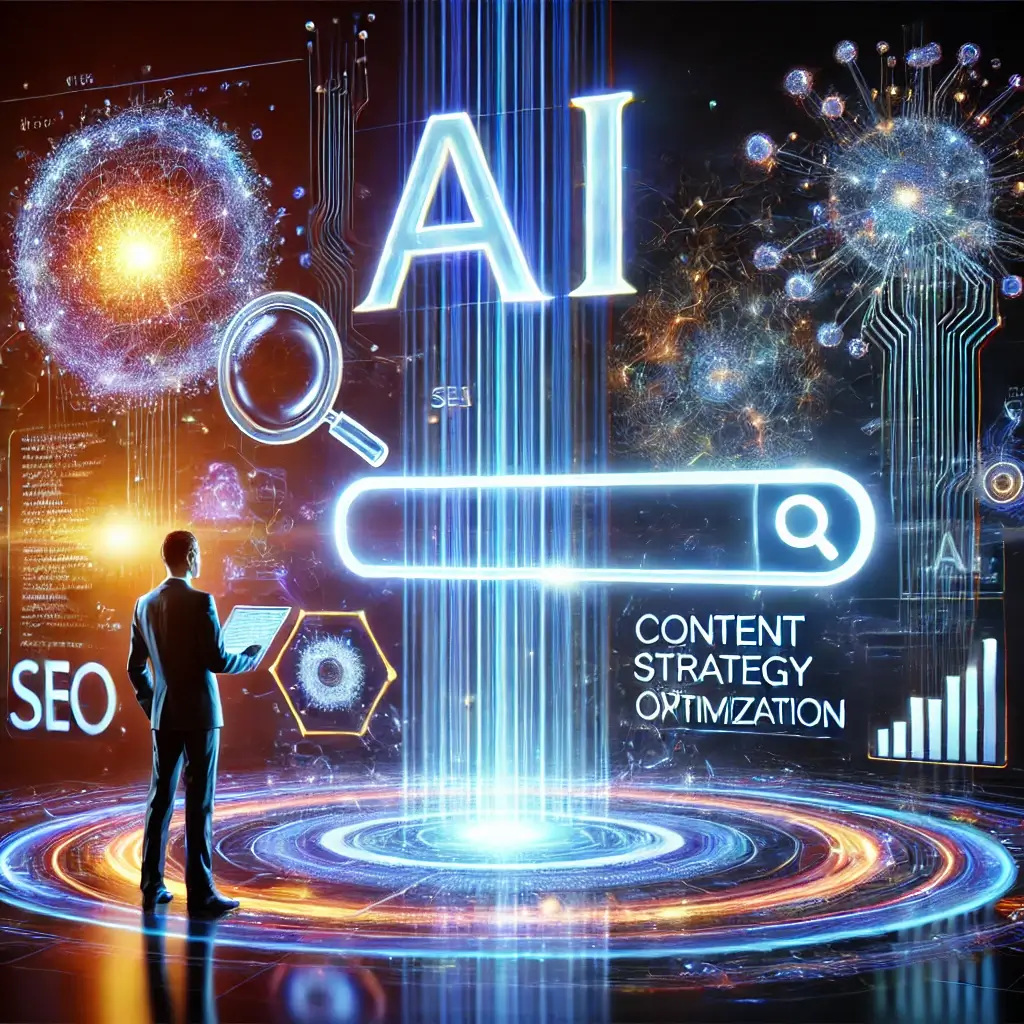Digital Landscape Transformation
The digital landscape is undergoing a profound transformation as artificial intelligence (AI) increasingly powers search engines. Technologies like Google’s AI advancements and Microsoft Bing’s collaboration with OpenAI are ushering in a new era of search engine optimization (SEO). By 2025, AI is predicted to dominate how search engines interpret user queries, rank content, and present results. For businesses, particularly marketing executives and SEO specialists, adapting to these changes is essential for staying competitive in the digital realm.
Evolution Beyond Keyword Matching
Unlike traditional search engines that relied heavily on keyword matching, AI-driven systems prioritize contextual understanding, user behavior analysis, and search intent. Features such as personalized results, voice search, and AI-rich snippets are now integral to the search experience. These advancements demand a fresh approach to SEO, focusing on producing high-quality, structured, and intent-driven content.
Article Purpose and Structure
This article delves into the challenges and opportunities of SEO in the AI-driven search engine era. It provides actionable strategies supported by real-world examples to help businesses thrive amidst these changes.
SEO in the AI Age: Strategies and Trends
1. Mastering Search Intent
Understanding User Intent Categories
AI-powered search engines excel at discerning user intent, whether informational, transactional, or navigational. Recognizing and aligning content with user intent is critical for effective SEO.
Financial Advisory Success Story
Example: A financial advisory firm revamped its blog strategy to cater to specific intents, such as “how to save for retirement” (informational) and “best retirement plans” (transactional). This targeted approach led to a 40% increase in organic traffic and enhanced audience engagement.
SEO Tools for Intent Alignment
To better align with search intent, businesses can leverage tools such as Clearscope and Semrush. These tools analyze search trends and guide content creation, ensuring that it aligns with user expectations and preferences. By doing so, businesses can achieve higher rankings and improved user engagement.
Voice Search Optimization Strategy
2. Voice Search Optimization
Rising Popularity of Voice Search
With the proliferation of AI assistants like Alexa, Google Assistant, and Siri, voice search has gained immense popularity. Optimizing for conversational queries and long-tail keywords is now crucial for maintaining visibility.
Restaurant Chain Voice Search Success
Case Study: A local restaurant chain adjusted its SEO approach to include phrases like “nearest vegan-friendly restaurant.” This simple change resulted in a 30% boost in local search rankings and increased customer visits.
Practical Voice Search Techniques
Voice search optimization requires adopting a conversational tone and understanding how users phrase spoken queries. Including questions and answers in content, along with geotargeting for local searches, can help capture voice search traffic effectively.
AI-Powered Content Creation
3. Leveraging AI for Content Creation
Content Creation Tools Revolution
AI-driven tools like Jasper and Surfer SEO are game-changers in content creation and optimization. These platforms analyze top-performing content and offer actionable recommendations for improvement.
eCommerce Content Optimization Case
Example: An eCommerce retailer used Jasper to refine its product descriptions. This strategy led to a 25% uplift in search engine rankings and a 20% increase in click-through rates.
Beyond Basic Content Creation
Beyond content creation, AI tools assist in identifying emerging trends and analyzing competitors’ strategies. By harnessing the power of AI, businesses can produce relevant, high-quality content that resonates with their target audience.
Structured Data Implementation
4. Emphasizing Structured Data
Rich Snippets Generation
AI-powered search engines rely on structured data to generate rich snippets and answer boxes. Adding schema markup can significantly enhance visibility in search engine results pages (SERPs).
Health Website Schema Success
Case Study: A health and wellness website implemented FAQ schema on its articles, leading to a 15% increase in snippet placements and a 10% growth in organic traffic.
Structured Data Benefits
Structured data not only improves rankings but also enhances user experience by delivering quick, concise answers directly in search results. Incorporating schema markup for products, reviews, FAQs, and articles can elevate a website’s SERP performance.
Continuous Adaptation Strategy
5. Staying Ahead with Regular Updates
Adapting to Algorithm Changes
SEO in the AI era is a dynamic field, requiring continuous adaptation. Keeping abreast of algorithm changes and user behavior trends is essential. Regularly updating content to reflect new information and incorporating AI-powered analytics can help businesses stay relevant.
Concluding Insights
The rise of AI in search engine algorithms represents both a challenge and an opportunity for businesses. By embracing AI tools, understanding user intent, optimizing for voice search, and leveraging structured data, companies can maintain and enhance their digital visibility. Additionally, staying proactive and updating strategies to align with evolving AI technologies will be crucial. As AI continues to evolve, businesses that prioritize adaptability and innovation will thrive in the competitive SEO landscape.
Source References
References
Google. “AI and the Future of Search.” Published 2024. [Link]
Statista. “The Growth of Voice Search and Its Impact on SEO.” Published 2024. [Link]
Forbes. “Adapting to AI-Driven Search Engines in 2025.” Published 2023. [Link]




